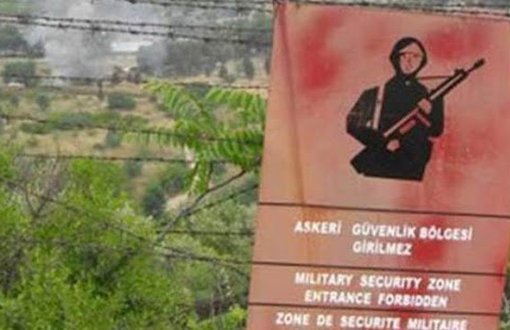Lawsuit into Explosion That Killed 13-Year-Old Ahmet to be Filed 12 Years Later

Click to read the article in Turkish / Kurdish
Ahmet Polat was collecting scrap for a living in the district of Pasinler in Turkey's eastern province of Erzurum.
On April 13, 2008, when he was on the D-100 Highway in front of the Transit Avenue Martyrs Cemetery near the Pasinler Gendarmerie Special Operation Battalion Command, he mistook the ammunition for scrap and smashed two pieces together. He lost his life and his five friends got wounded in the ensuing explosion. He was 13 years old.
The military prosecutor's office and the administrative court concluded that "the family had the responsibility", the criminal proceedings ended in a decision of non-prosecution and the suit for damages was rejected.
The family appealed to the Constitutional Court. In its verdict, the Court concluded that a child as young as him was not prevented from entering a military zone and the public authorities had responsibility in his death. The Constitutional Court sent the file of the case to the court for a retrial.
'Entrance forbidden' sign cited as evidence
In the autopsy report in the file of the investigation launched by Pasinler Chief Public Prosecutor's Office, it was indicated that Ahmet Polat died as a result of "fractures and internal organ injuries from a cluster explosion."
After police officers examined the vicinity of the Brigade Command, they reported that "there were some missing parts on the wire fence facing the highway, however these parts were guarded by guards and there was a sign that read "Military Security Zone, Entrance Forbidden.'
The friends of Ahmet Polat, who were wounded in the explosion, said that they were collecting scrap in a different place. When they met him near the graveyard, the explosion occurred when Ahmet took out two objects from his bag and smashed them together.
According to the criminal report, the pieces of ammunition 'had features similar to weapons such as anti tanks, grenade launchers, etc."
Military prosecutor said 'no neglect detected'
The file was handed over to the military prosecutor's office.
The office gave a decision of non-prosecution "... as it is understood that it could not be detected when and by which troop the ammunition was used, it was not possible to detect any neglects with regard to the military personnel, especially to those who deposed as suspects, and there was no sufficient suspicion to file a criminal case against any military personnel..."
Court found the family negligent, rejected lawsuit
The family of Ahmet filed a suit for pecuniary and non-pecuniary damages against the Ministries of Interior and National Defense.
The Administrative Court also rejected this lawsuit based on the decision of non-prosecution given by the military prosecutor's office, indicating that "there was no neglect of duty and the deceased as well as his parents, who did not fulfil their duty of supervision, were the negligent party."
After the 10th Chamber of the Court of Cassation upheld this rejection, the family made an individual application to the Constitutional Court.
Justified ruling: Security measures were not taken
In its ruling dated January 9, 2020, the Constitutional Court has concluded that the right to life guaranteed by the Article 17 of the Constitution has been violated and ruled that the file of the case shall be referred to the Erzurum 2nd Administrative Court for retrial.
The justified ruling of the top court has indicated that "public authorities have the responsibility to take special security measures to protect life and the right to life has been violated as the related measures were not taken":
"It has been concluded that measures such as signs, partial wire fences and guards could not prevent the ammunition provision of Ahmet Polat, who cannot be expected to act like adults, and therefore, the security measures taken by the military authorities were not sufficient in the concrete case." (AS/SD)
bianet submits shadow report to UN Human Rights Committee

Imprisoned lawyer exposes use of disciplinary investigations to pressure political prisoners

Tap water ‘smells of bleach’ in Muğla prison

Censorship on a letter from prison describing hunger

Prisoner on hunger strike: 'I am alone without sunlight'






